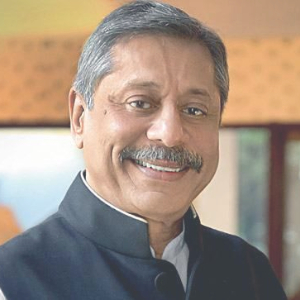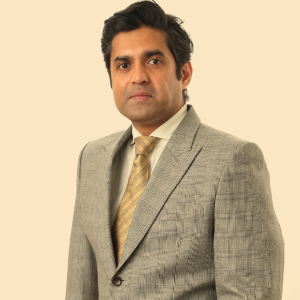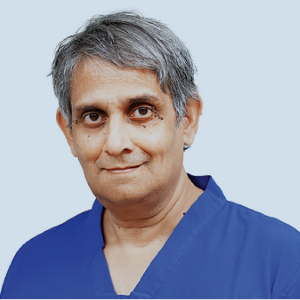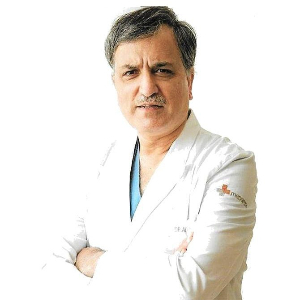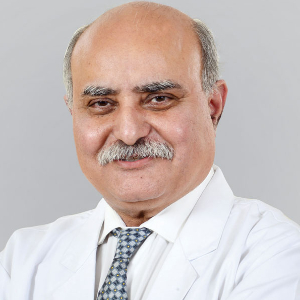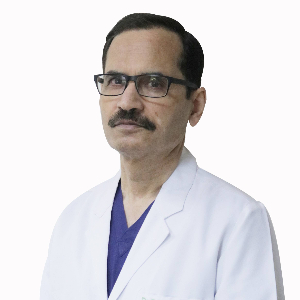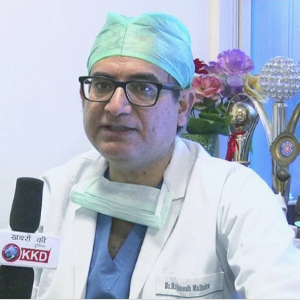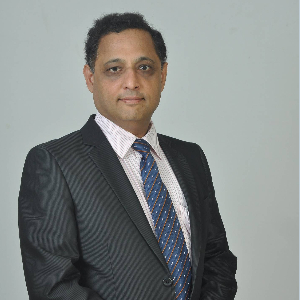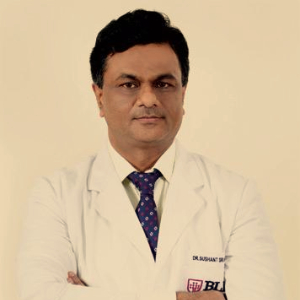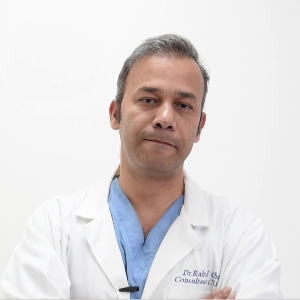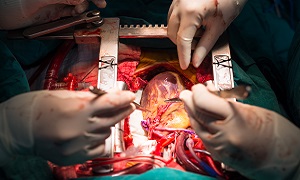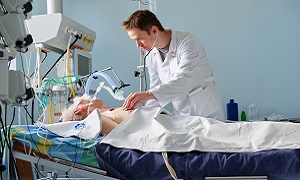Best Ventricular Assist Device Implantation Surgeons in India
- Cardiac Surgeon, Gurugram, India
- Over 40 years’ experience
- Medanta-The Medicity, Gurgaon
Profile Highlights:
- Dr. Naresh Trehan is one of the most highly skilled and globally recognized cardiothoracic and vascular surgeons.
- His experience encompasses 40+ years and is considered one of the most successful and accomplished cardiac surgeons in the country.
- Dr. Naresh Trehan specializes in cardiovascular surgery, cardiothoracic surgery, Heart Transplant, and Minimally Invasive Cardiac Surgery and has performed more than 48,000 successful open-heart surgeries to date.
- He started his career as a Cardiac Surgeon at New York University Medical Centre where he performed over 3000 coronary artery surgeries and returned to India in 1988 and founded the Escorts Heart Institute and Research Center in New Delhi.
- Dr. Trehan is the Founder Chairman of Medanta- The Medicity in Gurugram, a premier multi-specialty hospital with state-of-the-art infrastructure and equipped with the latest and advanced technologies.
- Heart & Lung transplant Surgeon, Hyderabad, India
- Over 20 years’ experience
- KIMS Hospital Hyderabad
Profile Highlights:
- Dr. Sandeep Attawar is a highly recognized Heart and Lung transplant surgeon in India who has over 2 decades of experience as a cardiac surgeon and has performed more than 10,000 cardiac surgeries on adult and pediatric patients.
- Dr. Attawar specializes in all types of surgeries for adults as well as pediatric heart patients and finds interest in heart and lung transplant surgery, congenital heart surgery, Aortic aneurysm repair, and implantation of heart failure devices.
- Heart Lung Transplant Surgeon, Chennai, India
- Over 40 years’ experience
- MGM Healthcare Chennai
Profile Highlights:
- Dr. K R Balakrishnan is a highly coveted cardiac surgeon in India and is probably one of the best heart transplant surgeons in the country.
- He has performed the largest number of heart transplants in the country including 180+ heart transplants, 23 lung transplants, and 9 heart & lung transplant procedures. He performed the first permanent artificial heart transplant in India with HeartMate II LVAD.
- Dr. K R Balakrishnan has over 40 years of experience in the field and has the expertise to perform cardiac surgeries on patients of all ages. He has performed over 16000 cardiac surgeries for various types of heart diseases and disorders till date.
- Cardio Thoracic & Vascular Surgeon, Gurugram, India
- Over 35 years’ experience
- Medanta-The Medicity, Gurgaon
Profile Highlights:
- Dr. Anil Bhan is an excellent Cardiovascular and thoracic surgeon who has performed more than 15,000 cardiac and vascular surgeries that include heart transplant surgery, aortic aneurysm surgery, pediatric cardiac surgery, valve repairs, and peripheral vascular surgery among several others.
- He is one of the best pediatric cardiac surgeons in Delhi/ NCR and is credited with performing heart bypass surgery on the youngest patient in India in 2007 (18 months).
- He performed the first extracorporeal membrane oxygenation (ECMO) and was the first to use a harmonic scalpel for harvesting radial mammary artery conduits in India in 2000 and 1995 respectively.
- Cardio Thoracic & Vascular Surgeon, Noida, India
- Over 38 years’ experience
- Fortis Hospital Noida
Profile Highlights:
- Dr. Ajay Kaul is a leading name in the field of Cardiothoracic and Vascular Surgery in India.
- He has over 3 decades of experience in performing cardiac surgeries and has done more than 25,000 cardiac operations till date.
- He specializes in Coronary Bypass surgery and is one of the best with the highest number of total arterial coronary bypass surgery (4000+) by using two internal mammary arteries from the chest and without any cuts on arms and legs.
- Dr. Ajay Kaul’s interest lies in complex congenital cardiac diseases in children, pediatric cardiac surgery, aneurysm surgery, valve repair surgery, and cardiac failure surgery.
- He is also an expert in minimally invasive cardiac surgeries (MICS) and has performed more than 5000 MICS which is the highest by any cardiac surgeon in India.
- Top Cardiac Surgeon | Fortis Escorts, New Delhi, India
- 35+ Years Experience
- Fortis Escorts Heart Institute New Delhi
Profile Highlights:
- Dr. Z. S. Meharwal is a highly esteemed and accomplished Cardiac Surgeon, serving as the Chairman and Head of Adult Cardiac Surgery at Fortis Okhla, where he leads the Cardiac Sciences and Adult Cardiothoracic and Vascular Surgery (CTVS) departments.
- With over 30 years of unparalleled experience, Dr. Meharwal has performed more than 30,000 cardiac surgeries, including some of the most complex heart operations and Left Ventricular Assist Device (LVAD) implantations.
- Dr. Meharwal holds prestigious degrees in medicine, including MBBS, MS, M.Ch, and MNAMS.
- Top Cardio Thoracic & Vascular Surgeon | Max Hospital, Saket, New Delhi, India
- 31+ Years Experience
- Max Super Specialty Hospital, Saket, New Delhi
Profile Highlights:
- Dr. Rajneesh Malhotra is a distinguished cardiovascular and thoracic surgeon in India with over 31 years of experience.
- He is a prominent leader in the field of Cardiac Sciences and Cardiac Surgery (CTVS).
- Currently serving as the Vice Chairman and Head of CTVS at Max Healthcare, Dr. Malhotra has a robust background in both traditional and advanced cardiac surgical techniques.
- Cardio-vascular and Thoracic Surgery & Heart Transplant, Mumbai Maharashtra
- Over 30 years’ experience
- Reliance Hospital Navi Mumbai
Profile Highlights:
- Dr. Anvay Mulay is a renowned Consultant Cardio-thoracic Surgeon at Sir H. N. Reliance Foundation Hospital, specializing in advanced Cardiovascular, Thoracic Surgery, and Heart Transplant.
- With over 30 years of global experience, he has a distinguished track record in leading-edge cardiac care.
- Dr. Anvay Mulay has worked at Leeds General Infirmary, Providence St Vincent Hospital, and Bristol Royal Infirmary.
- He holds an MBBS and MS from Grant Medical College, Mumbai, an MCh from the University of Mumbai, and completed his fellowship at St. Vincent’s Hospital, Oregon.
- Chairperson Heart & Lungs Transplant, New Delhi, India
- Over 20 years’ experience
- Artemis Hospital, Gurgaon
Profile Highlights:
- Dr. Sushant Srivastava is a highly respected Cardio-Vascular Surgeon with a distinguished career spanning over two decades.
- He is currently the Chairperson for Heart & Lungs Transplant at Artemis Hospitals, Gurugram.
- An expert in Cardio Thoracic and Vascular Surgery, Dr. Srivastava has performed over 10,000 surgeries, making significant contributions to the field with his expertise in complex procedures.
- Senior Cardiothoracic and Heart Lung Transplant Surgeon, New Delhi, India
- Over 23 years’ experience
- PSRI Hospital
Profile Highlights:
- Dr. Rahul Chandola is a renowned cardiothoracic and vascular surgeon in India specializing in Adult CTVS along with heart and lung transplant surgeries.
- He is an expert heart and lung transplant surgeon and has performed over 100 heart transplant surgeries with successful results in both adult and pediatric patients.
- Currently, he works as a Senior Cardiothoracic and Heart Lung Transplant Surgeon in PSRI Hospital, New Delhi.
Best VAD Implantation Hospitals in India
- City: New Delhi, India
Hospital Highlights:
- Over the last 33 years, the Fortis Escorts Heart Institute has set new standards in cardiac treatment with groundbreaking research. It is now known around the world as a centre of expertise for Cardiac Bypass Surgery, Interventional Cardiology, Non-invasive Cardiology, Paediatric Cardiology, and Paediatric Cardiac Surgery.
- The hospital has cutting-edge laboratories that perform a wide range of diagnostic tests in Nuclear Medicine, Radiology, Biochemistry, Haematology, Transfusion Medicine, and Microbiology.
- Fortis Escorts Heart Institute boasts a diverse group of bright and experienced doctors who are backed up by a team of highly qualified, experienced, and devoted support professionals as well as cutting-edge equipment such as the recently installed Dual CT Scan.
- Approximately 200 cardiac doctors and 1600 personnel currently collaborate to manage over 14,500 admissions and 7,200 emergency situations each year. The hospital now has a 310-bed infrastructure, as well as five cath labs and a slew of other world-class amenities.
- City: Faridabad
Hospital Highlights:
In the sprawling city of Faridabad, where healthcare needs are diverse and ever-evolving, one institution has consistently stood out as a beacon of excellence in the field of medicine—Marengo Asia Hospital. Established with a vision to provide world-class healthcare services to the community it serves, Marengo Asia Hospital has emerged as a trusted name synonymous with quality, compassion, and innovation in healthcare.
- City: New Delhi, India
Hospital Highlights:
- Equipped with 650 beds, BLK-Max Super Speciality Hospital is the largest stand-alone private sector hospital in Delhi.
- With over 1500 healthcare providers and 150 globally renowned super specialists, the hospital is one of Asia’s largest BMT Centres. The hospital is known for having some of the best cancer doctors in the country.
- The hospital is NABH and NABL accredited and was inaugurated by the first Prime Minister of India. Pt. Jawahar Lal Nehru.
- City: Chennai, India
Hospital Highlights:
- Located in Chennai, India, MGM Healthcare is a top multispecialty hospital that provides all medical services under one roof.
- Since its founding in 2019, MGM Healthcare has quickly become a leading national referral centre, creating several innovative flagship initiatives.
- MGM Healthcare combines next-generation medical and digital technologies to provide better patient results.
- With 12 centres of excellence, more than 400 inpatient beds, 100 intensive care unit beds, and 24/7 emergency care, MGM Healthcare leaves no chance in redefining the patient experience in Chennai.
- MGM Healthcare boasts 250+ expert doctors across 30+ departments, including Cardiology, Pulmonology, Neurology, Obstetrics & Gynaecology, and more.
- They house 12 specialized Centres of Excellence, including Neurosciences, Orthopaedics, and Multi-Organ Transplantation.
- Their team of doctors, nurses, and paramedics works together to give every patient individualized treatment.
- City: Noida, India
Hospital Highlights:
- Fortis Hospital, Noida, stands as one of the oldest and most trusted healthcare institutions in the region, setting a benchmark for comprehensive medical care.
- As the second mega hub hospital in the Fortis Healthcare Group, Fortis Hospital, Noida, upholds a legacy of trust among more than 1.2 million patients. By integrating top-tier professionals with cutting-edge technology, the hospital delivers superior treatment across various medical disciplines.
- Specializing in advanced Neurosciences, Orthopedics, Kidney and Liver Transplant Programmes, Fortis Hospital, Noida has successfully performed over 1,500 transplants, solidifying its reputation as a leader in specialized medical interventions.
Ventricular Assist Device
A ventricular assist device is a mechanical pump implanted inside the chest of a person, suffering from a weak heart or heart failure. It can help you pump blood from the lower chambers of your heart to the rest of the body. Though this device is mostly placed in the left ventricle, it can be placed in the right or even center.
A patient can have a ventricular assist device while they are waiting for a heart transplant or waiting for their own heart to become stronger so that it is able to pump blood on its own. It can also be recommended as a long-term treatment if you are having heart failure, but you are not a good candidate for having a heart transplant. However, it is to be noted that a ventricular assist device cannot replace the real heart, though it can help the heart do its job.
Purpose
A ventricular assist device can help to support the lower left heart chamber, or the lower right heart chamber, or in some cases both the lower heart chambers. It can help to relieve several symptoms, such as constant tiredness or shortness of breath.
In some rare cases, it can also help the heart recover its normal ability by giving it a chance to rest. It maintains or improves other organs as well.
This procedure is generally recommended if:
- You are waiting for a heart transplant- You may have a ventricular assist device implanted, while you are waiting for a donor heart to become available. Even if your heart is diseased, the device can assist your heart to continue pumping blood. It can also help improve the functions of other parts of your body, which might not be working properly.
- You are not eligible for a heart transplant- In some cases, this device can also be implanted if despite having a weak heart, you are not eligible for a heart transplant due to factors such as age or any other medical conditions. This is generally known as destination therapy. In some cases, this device can help you improve your conditions so that you are able to become a heart transplant candidate, or you might even keep the device as a form of permanent treatment.
- Your heart’s function can get normal once more- If your heart failure is temporary, the ventricular assist device can be recommended till your heart is again healthy enough to pump blood on its own once again.
Before the procedure
Before you undergo the procedure for implantation of the device, your doctor and treatment team will be explaining to you what you can expect before, during and after your surgery. The potential risks are going to be discussed as well. Your team will also discuss any concerns that you might have regarding your surgery. Any hair at the location of your body, where the procedure will take place, will need to be shaved off.
You will also need to arrange for someone to help you after you return home.
You will also need to discuss with your doctor when you can take your regular medications, or whether you should continue taking them before the surgery.
You might need to stop eating or drinking the night before the procedure.
Before the device is implanted, you will likely need to stay in the hospital for some days. During your stay at the hospital, you might receive other treatments for your heart problems.
Your doctor will also need to review several factors before deciding that a ventricular assist device is the most appropriate treatment for your condition. Some of these factors include:
- The severity of your heart failure or ailment
- Any other medical conditions that might be affecting your heart or quality of life
- Whether you are able to take blood-thinning medications for long periods of time
- Whether you are mentally and emotionally stable for taking care of the device
- Whether you have appropriate support from your family and friends
Your doctor might also order some tests, to ensure that you are healthy enough for the surgery. Some of these tests can include an echocardiogram, blood tests, chest X-ray, or an electrocardiogram.
Procedure
The procedure for implanting a ventricular assist device is generally an open-heart surgery which can take four to six hours. You will be sedated with general anesthesia and therefore you will be unconscious during the entire procedure, and will not feel any pain.
Then the healthcare team will connect you to a machine that will help you to breathe throughout the procedure. A tube will be run down your throat to your lungs, and then connected to a ventilator. In most cases, you may need to be connected to this ventilator for some days after the surgery.
The procedure for implanting the ventricular assist device can take as long as four to six hours.
First, a small incision will be made in the center of your chest. Your surgeon will need to separate your chest bone and open the rib cage, to operate on the heart.
You are going to be connected to a heart-lung bypass machine which will keep the oxygenated blood flowing through the body during the surgery if your heart needs to be stopped during the surgery.
Next, your surgical team is going to implant the device. An implanted left ventricular assist device has various parts. A tube carries the blood from the left ventricle of your heart to a pump. The pump delivers the blood through another tube to the aorta, the artery leading out to the body from the heart, which then delivers blood to your body. A cable inserted through the skin connects the pump to the control unit and battery pack outside the body.
Once the device is implanted and working well, your doctors are able to take you off the heart-lung bypass machine, so that the device can begin pumping blood through your heart.
After the procedure
After your procedure, you will need to stay in the intensive care unit for some time. You will receive fluids, nutrition, and medications through an IV line. Other tubes will be draining urine from your bladder, and will also be draining fluid and blood from your chest and heart.
You will be monitored by your treatment team for signs of infection or any other complications. Although your lungs might not work properly immediately after the surgery, it is likely that you are going to remain connected to a ventilator for some days after the surgery, until you are able to breathe on your own.
After you spend a few days in the ICU, you are going to be moved to a regular hospital room. The amount of time that you will need to spend in the ICU and at the hospital may vary, depending on your condition before the procedure and during your recovery.
As you continue to recovery, your nurses and other members will be helping you to become more active.
You will also receive medications and instructions from your doctor for taking them. If you have any questions regarding your medications, or you experience any side effects from them, let your doctor know.
Once you have recovered and have regained your strength, the treatment team will determine whether you should be released from the hospital. Sometimes if more time is required for your recovery, you might need to stay at a special care facility before you return home.
Make sure that you keep your follow-up appointments with your doctor and the treatment team so that they can check how well the device is working, and if it is leading to any complications. The follow-up appointments can also include a physical examination as well as several tests.
Risks
Some of the few risks that are associated with this procedure include:
- Infection
- Stroke
- Internal bleeding
- Blood clots
- Heart failure
- Device failure
- Respiratory failure
- Kidney failure

